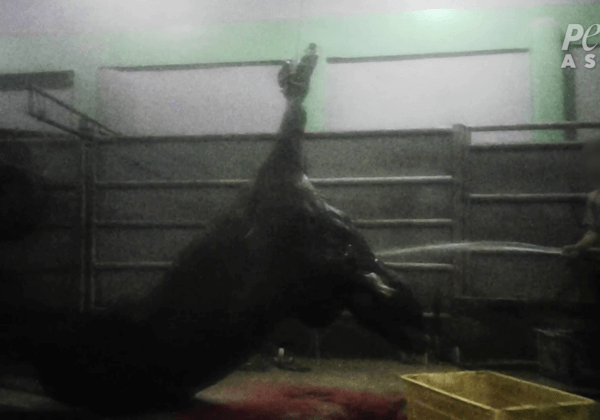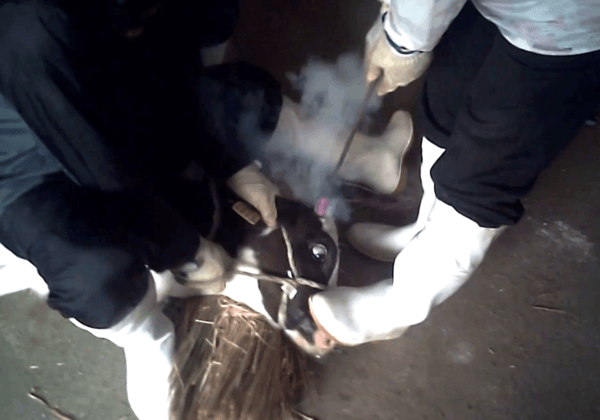‘B’ Is for Breeding, ‘S’ Is for Slaughter
 A world in which no animals are slaughtered for food can only be a good thing for human health, the environment, and, of course, animals. But how do you respond to that often-raised and poorly understood claim that if humans didn’t eat animals, the world would be overrun by cows, pigs, sheep, and chickens?
A world in which no animals are slaughtered for food can only be a good thing for human health, the environment, and, of course, animals. But how do you respond to that often-raised and poorly understood claim that if humans didn’t eat animals, the world would be overrun by cows, pigs, sheep, and chickens?
While this isn’t the most well-founded argument, it is often made by people who genuinely do not understand the current system of livestock production and factory farming. They may honestly not realize that animals are not left to roam in grassy green fields to breed among themselves as they see fit. It is up to all of us to take the time to explain to them what happens to animals used for food and why they won’t take over the planet if the world went vegetarian!
Take the time to explain that the billions of animals raised and slaughtered for food every year are deliberately bred in order to supply humans with meat—and that if demand for their flesh stopped, then producers would simply stop breeding these animals. Animals raised for slaughter lead short, miserable lives so that producers can make as much money from them as possible by rearing them quickly and cheaply.
The fact is, the entire world is not going to go vegetarian overnight. But as demand for meat products lessens, so will the number of animals farmed for their flesh. And eventually, by the time there is no need for animals to be slaughtered for food, the few animals remaining can be left to live out their lives naturally with no further breeding required.
And for those who say that any life is better than no life at all, you can simply tell them that they should see the terror, fear, pain, misery, and final degrading and inhumane slaughter of a factory-farmed animal before deciding if that is a life worth living.
The simplest way to make people understand today’s factory farming is to show them a video, such as “Meet Your Meat.” This should help them to understand not only the way that animals used for food are treated but also the number of animals who are bred and reared to their slaughter weight as quickly as possible.
At the end of the day, the argument is simple: Animals are not ours to eat.
Posted by Claire Fryer








